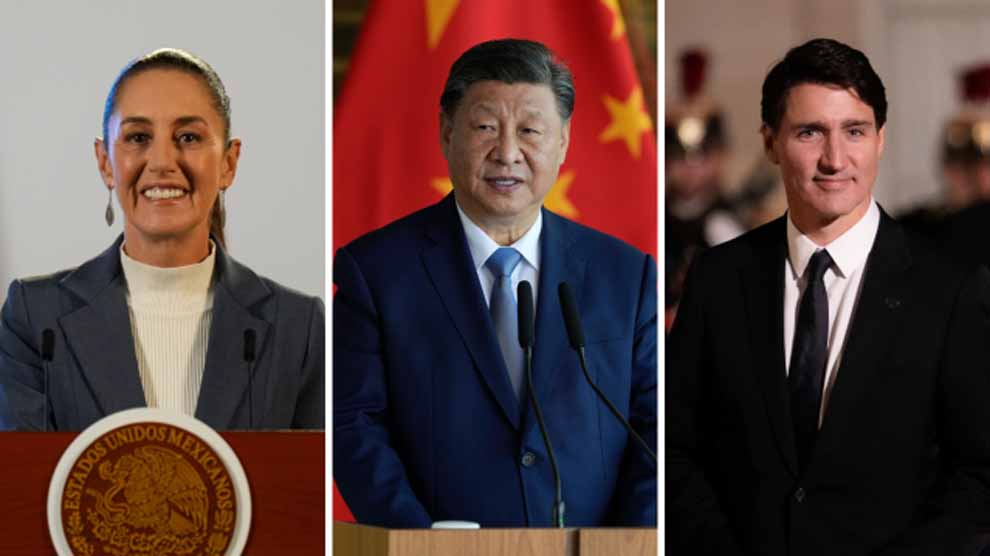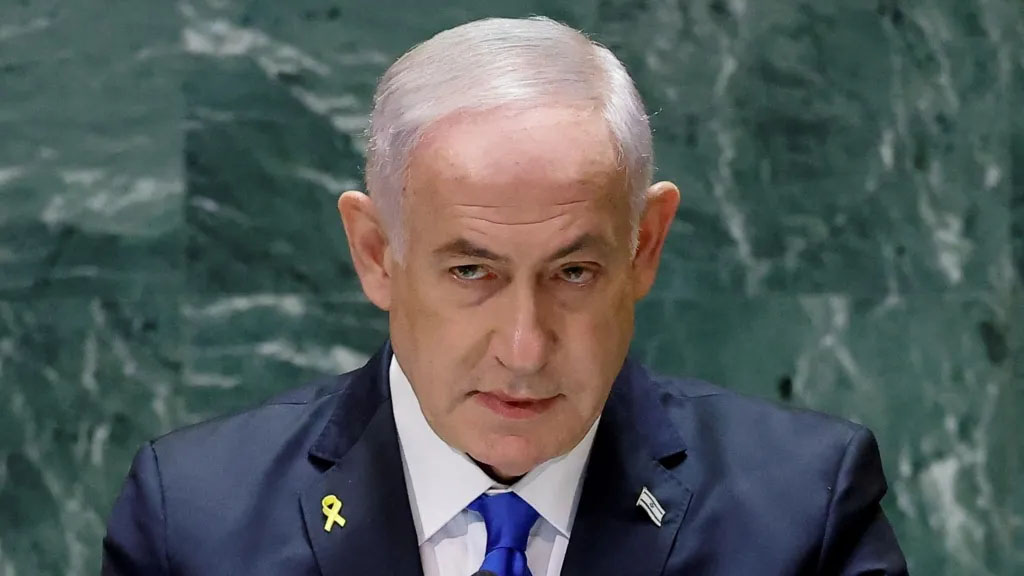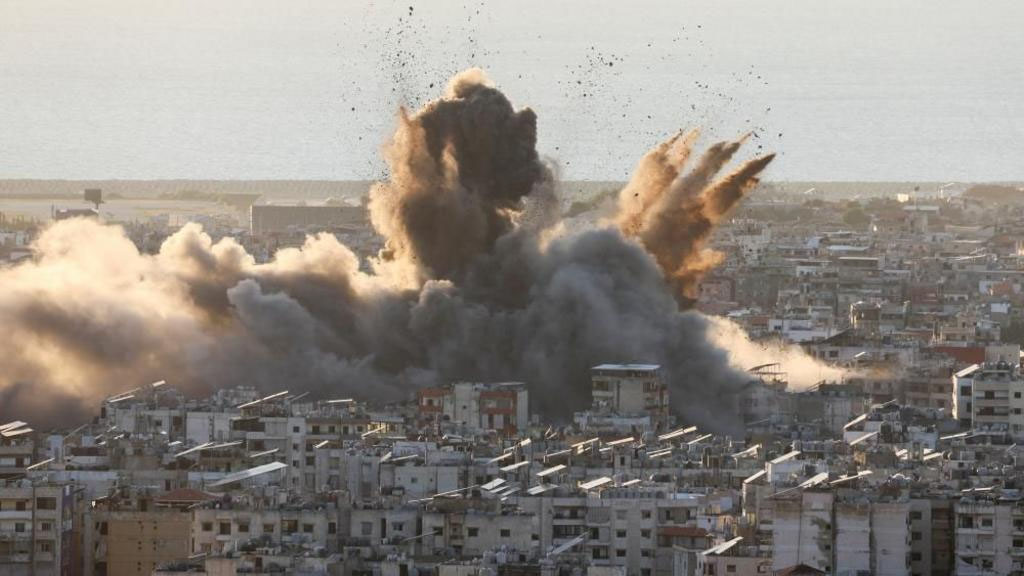International
Boycott of Russian gas and oil ‘could cause mass poverty in Germany’

Germany has warned that an immediate boycott of Russian gas and oil supplies could hurt its own population more than Vladimir Putin, bringing mass unemployment and poverty.
“If we flip a switch immediately, there will be supply shortages, even supply stops in Germany,” the economic and energy minister Robert Habeck told public broadcaster ARD on Sunday, as Europe’s largest economy intensely searches to diversify its energy supplies in the medium term.
The Green party politician predicted “mass unemployment, poverty, people who can’t heat their homes, people who run out of petrol” if his country stopped using Russian oil and gas.
Few other western economies are as dependent on Russian energy as Germany: 55% of the natural gas, 52% of the coal and 34% of mineral oil used in the country comes from Russia, for which it pays hundreds of thousands of euros daily, financially supporting the war machine currently devastating Ukraine.
Habeck said his government was working hard to ensure Germany would be in a position to give up Russian coal by the summer, and to phase out Russian oil by the end of the year, but that a short-term ban on Russian gas could leave his country exposed.
“With coal, oil and even gas we are step by step in the process of making ourselves independent”, the former Green party co-leader said. “But we can’t do it in an instant. That’s bitter, and it’s not a nice thing morally to confess to, but we can’t do it yet.”
READ ALSO:
- If Putin uses chemical weapons in Ukraine it’s a ‘game changer’ for NATO
- Scarcity of aviation fuel: We’ve only 3 days to shut down operations – Airlines
- 14-Year-Old Nanny Strangles Mistress’ Six-Month-Old Baby In Lagos
The US, which imported roughly 8% of its crude oil needs from Russia in 2021, announced a ban on Russian oil with immediate effect last week, while the UK announced it would phase out Russian oil imports by the end of the year.
Since the start of the war in Ukraine, the German chancellor, Olaf Scholz, has u-turned on a number of foreign policy red lines, consenting to deliver lethal weapons to Ukraine, supporting cutting Russia off from the Swift payment system, and freezing the completed but not yet functional Nord Stream 2 pipeline underneath the Baltic Sea.
But the centre-left leader has said his hands are tied when it comes to banning Russian energy. “Currently there is no other way to secure Europe’s supply with energy to generate heat, for mobility, for power supply and for industry,” Scholz said last week.
Depending on the predictions of various thinktanks and economic institutes, an immediate stop in Russian gas deliveries could shrink Germany’s GDP by as little as 0.1 or as much as 5.2 percentage points.
In an open letter, a number of prominent German scientists, writers and activists have urged the government to take the bold step of cutting itself loose from Russian energy. The Christian Democratic Union party of the former chancellor Angela Merkel has proposed shutting down the Nord Stream 1 pipeline while allowing gas imports via other routes.
Germany’s left-liberal government, meanwhile, is trying to buy time in order to fill up its gas reserves, which were undersupplied by Russian energy companies last year and are largely depleted at the end of the winter.
In its search for alternative sources of energy, short-term solutions are also hard to come by. Simplifying the process whereby new wind and solar farms are to be authorised was one of the promises of the “traffic light” government’s coalition deal, but construction alone will take time.
Building port terminals for liquefied natural gas (LNG), as Germany has now vowed to do in the towns of Brunsbüttel und Wilhelmshaven, usually takes at least five years.
“Can’t do is a highly problematic statement”, energy expert Claudia Kemfert told ARD. “Because the likely challenge we are facing is that we have no choice but to can do”.
THE GUARDIAN
International
Canada, Mexico, China respond to Trump tariff threats

Canada, Mexico, China respond to Trump tariff threats
Officials from Canada, Mexico and China have warned US President-elect Donald Trump’s pledge to impose sweeping tariffs on America’s three largest trading partners could upend the economies of all four countries.
“To one tariff will follow another in response and so on, until we put our common businesses at risk,” Mexico’s President Claudia Sheinbaum said.
Trump vowed on Monday night to introduce 25% tariffs on goods coming from Mexico and Canada and an additional 10% on goods coming from China. He said the duties were a bid to clamp down on drugs and illegal immigration.
Canada’s Prime Minister Justin Trudeau said he spoke to Trump in the hours after the announcement and planned to hold a meeting with Canada’s provincial leaders on Wednesday to discuss a response.
A spokesman for China’s embassy in Washington DC told the BBC: “No-one will win a trade war or a tariff war.”
The international pushback came a day after Trump announced his plans for his first day in office, on 20 January, in a post on his social media website, Truth Social.
Trudeau said his country was prepared to work with the US in “constructive ways”.
“This is a relationship that we know takes a certain amount of working on, and that’s what we’ll do,” Trudeau told reporters.
In a phone call with Trump, Trudeau said the pair discussed trade and border security, with the prime minister pointing out that the number of migrants crossing the Canadian border was much smaller compared with the US-Mexico border.
READ ALSO:
- EFCC to arraign Yahaya Bello today for alleged N110bn fraud
- Court dismisses Sanwo-Olu’s suit to stop EFCC from arresting him after tenure expires
- US University opens 2025 scholarships for international students
Trump’s team declined to confirm the phone call.
But Trump spokesman Steven Cheung added that world leaders had sought to “develop stronger relationships” with Trump “because he represents global peace and stability”.
Mexico’s President Sheinbaum told reporters on Tuesday that neither threats nor tariffs would solve the “migration phenomenon” or drug consumption in the US.
Reading from a letter that she said she would send to Trump, Sheinbaum also warned that Mexico would retaliate by imposing its own taxes on US imports, which would “put common enterprises at risk”.
She said Mexico had taken steps to tackle illegal migration into the US and that “caravans of migrants no longer reach the border”.
The issue of drugs, she added, “is a problem of public health and consumption in your country’s society”.
Sheinbaum, who took office last month, noted that US car manufacturers produce some of their parts in Mexico and Canada.
“If tariffs go up, who will it hurt? General Motors,” she said.
Meanwhile, a spokesman for China’s embassy in Washington, Liu Pengyu, told the BBC that “China-US economic and trade co-operation is mutually beneficial in nature”.
He denied that China allows chemicals used in the manufacture of illegal drugs – including fentanyl – to be smuggled to the US.
“China has responded to US request for verifying clues on certain cases and taken action,” Liu said.
“All these prove that the idea of China knowingly allowing fentanyl precursors to flow into the United States runs completely counter to facts and reality.”
President Joe Biden has left in place the tariffs on China that Trump introduced in his first term, and added a few more of his own.
Currently, a majority of what the two countries sell to each other is subject to tariffs – 66.4% of US imports from China and 58.3% of Chinese imports from the US.
Speaking in the House of Commons in Ottawa, Trudeau told lawmakers that “the idea of going to war with the United States isn’t what anyone wants”.
He called on them to not “panic”, and to work together.
“That is the work we will do seriously, methodically. But without freaking out,” he said.
The leaders of Canadian provinces suggested that they would impose their own tariffs on the US.
“The things we sell to the United States are the things they really need,” Deputy Prime Minister Chrystia Freeland said on Tuesday. “We sell them oil, we sell them electricity, we sell them critical minerals and metals.”
America’s northern neighbour accounted for some $437bn (£347bn) of US imports in 2022, and was the largest market for US exports in the same year, according to US data.
Canada sends about 75% of its total exports to the US.
Doug Ford, the premier of Ontario, Canada’s most populous province, said on Monday the proposed tariff would be “devastating to workers and jobs in both Canada and the US”.
“To compare us to Mexico is the most insulting thing I’ve ever heard,” said Ford.
Ford was echoed by the premiers of Quebec, Saskatchewan and British Columbia, while a post on the X account of Alberta Premier Danielle Smith acknowledged that Trump had “valid concerns related to illegal activities at our shared border”.
The Canadian dollar, the Loonie, has plunged in value since Trump vowed to impose tariffs on Canadian imports come January.
The Canadian dollar dipped below 71 US cents, the lowest level the Loonie has fallen to since May 2020, when Trump threatened to impose tariffs on Canadian goods during his first stint as US president. The Mexican peso fell to its lowest value this year, around 4.8 cents.
Canada, Mexico, China respond to Trump tariff threats
BBC
International
Relief as Israel agrees to ceasefire with Lebanon

Relief as Israel agrees to ceasefire with Lebanon
Israeli Prime Minister Benjamin Netanyahu has said he will bring a US-brokered proposal for a ceasefire with Hezbollah in Lebanon to his government for approval as soon as Tuesday evening.
He said in a televised address that he would put “a ceasefire outline” to ministers “this evening”.
He however did not say how long the truce would last, noting “the length of the ceasefire depends on what happens in Lebanon”.
But it later learnt that the ceasefire would is for 60 days.
During the period, Hezbollah fighters are expected to retreat 40 kilometres from Israel’s border, with Israeli ground forces withdrawing from Lebanese territory.
“If Hezbollah violates the agreement and attempts to rearm, we will strike,” Netanyahu warned.
Key Israel backer the United States has led ceasefire efforts for Lebanon alongside France.
US President Joe Biden is optimistic the deal will lead to a “permanent cessation of hostilities”.
Biden added that the US would lead another push for a ceasefire in Gaza.
“In full coordination with the United States, we are maintaining full military freedom of action,” Netanyahu said, outlining the seven-front war Israel says it faces in Gaza, the occupied West Bank, Yemen, Iraq, Syria, Lebanon and Iran.
Even as Netanyahu spoke about the ceasefire, the Israeli military carried out multiple strikes on heart of Beirut while the army said some 15 projectiles had entered Israeli airspace from Lebanon.
Demonstrators raise placards and Israeli flags during a protest in front of the Israeli Defence Ministry in the coastal city Tel Aviv on November 26, 2024, against a possible ceasefire with Hezbollah in Lebanon. – Israel’s security cabinet has started discussing a proposed ceasefire deal in its war with Hezbollah in Lebanon, an Israeli official confirmed to AFP on November 26. (Photo by Jack GUEZ / AFP)
The war in Lebanon escalated after nearly a year of limited cross-border exchanges of fire begun by Hezbollah, which said it was acting in support of Hamas after its October 7, 2023 attack on Israel, which sparked the war in Gaza.
The war has killed at least 3,823 people in Lebanon since October 2023, according to the health ministry, most of them since September.
On the Israeli side, the hostilities have killed at least 82 soldiers and 47 civilians, authorities say.
Netanyahu said the ceasefire would allow Israel to focus on “the Iranian threat” and ramp up its fight against Hamas in Gaza.
“With Hezbollah out of the picture, Hamas is left on its own,” he said.
“We will increase our pressure on Hamas and that will help us in our sacred mission of releasing our hostages.”
During last year’s Hamas attack, militants took 251 hostages, of whom 97 are still held in Gaza, including 34 the army has declared dead.
International
Israeli strikes pound central Beirut, suburbs

Israeli strikes pound central Beirut, suburbs
BEIRUT: Israeli strikes pounded a densely-populated part of the Lebanese capital and its southern suburbs on Tuesday, hours ahead of an anticipated announcement of a ceasefire ending hostilities between Israel and Lebanese armed group Hezbollah.
A strike on Beirut hit the Noueiri district with no evacuation warning and killed at least one person, Lebanon’s health ministry said in a preliminary toll.
READ ALSO:
- French football star, Paul Pogba’s blackmail trial begin in Paris
- French football star, Paul Pogba’s blackmail trial begin in Paris
- Vigilante arrested in Anambra for robbery
Minutes later, at least 10 Israeli strikes hit Beirut’s southern suburbs. They began approximately 30 minutes after the Israeli military issued evacuation orders for 20 locations in the area, the largest such warning yet.
As the strikes were under way, Israel’s military spokesperson Avichay Adraee said the air force was conducting a “widespread attack” on Hezbollah targets across the city.
Israeli strikes pound central Beirut, suburbs
ARAB NEWS
-

 metro1 day ago
metro1 day agoBREAKING: Port Harcourt refinery begins operation
-

 Sports1 day ago
Sports1 day agoFrench football star, Paul Pogba’s blackmail trial begin in Paris
-

 Politics2 days ago
Politics2 days agoLagos 2027: Seyi Tinubu campaign team releases his life documentary
-

 Entertainment2 days ago
Entertainment2 days agoPolygamy best form of marriage for Africa – Okey Bakassi
-

 metro2 days ago
metro2 days ago40-foot container falls on car in Lagos
-

 International2 days ago
International2 days agoTrump to sack 15,000 transgender officers from U.S. military: Report
-

 Education1 day ago
Education1 day agoUS University opens 2025 scholarships for international students
-

 News1 day ago
News1 day agoYahaya Bello reports to EFCC office with lawyers












